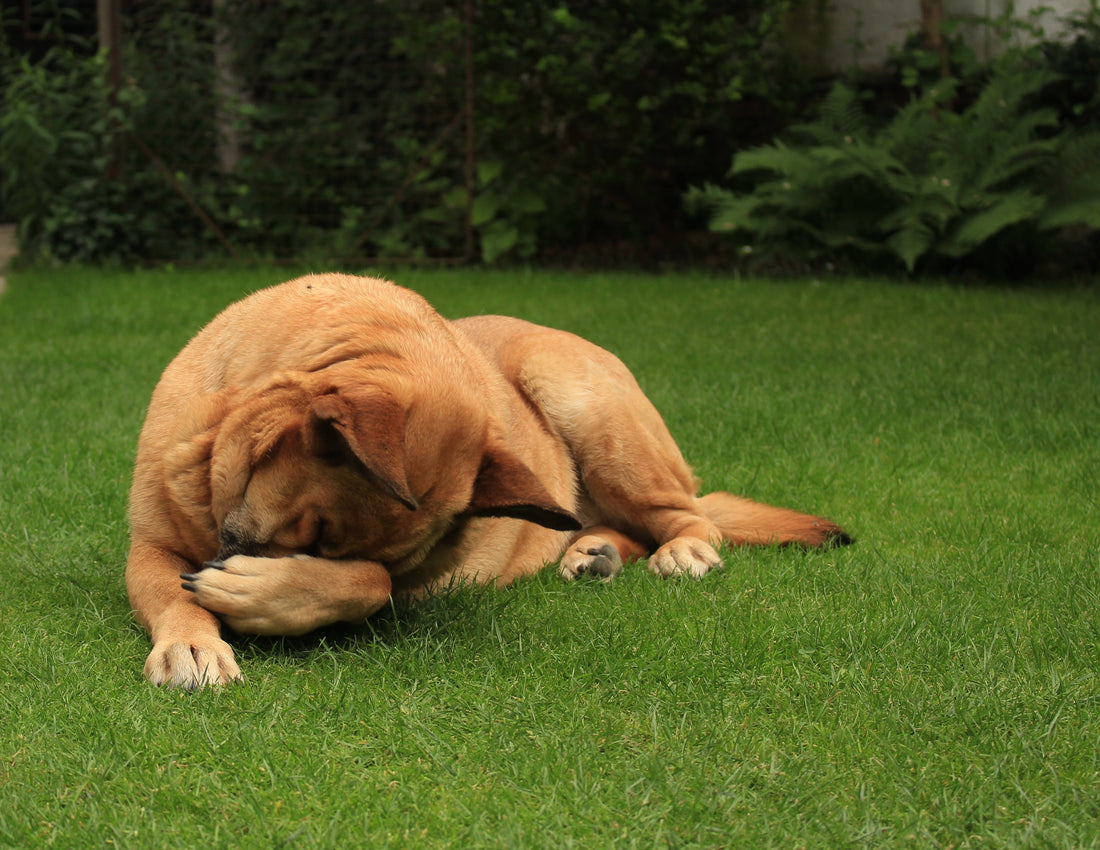Learn to recognize the symptoms of constipation in your dog so you can provide the proper treatment before it becomes a bigger problem!
Common Symptoms of Constipation in Dogs
- Not going potty for a few days
- Difficulty going potty and straining
- Stool that is hard and small
- Signs of discomfort or pain
- Stool that contains mucus or blood
Causes of Constipation in Dogs
Dogs can experience constipation for many reasons, with causes ranging from simple and easy to fix, to dangerous, and even life threatening.
Common (less-serious) causes of constipation include:
Diet and Hydration: Something as simple as a lack of fiber in your dog’s diet, as well as dehydration, can easily lead to constipation.
Age: As dogs get older, they may experience changes in digestion, as well as orthopedic and other health issues that affect proper bowel function.
Lifestyle: Exercise can also play a role. A lack of exercise has been shown to affect a dog’s overall digestive health, potentially leading to constipation, as well as other GI issues.
Grass: Dogs eat grass for a variety of reasons, and in general, this is nothing to be concerned about, but if they eat too much grass, it can be a cause of constipation.
Excessive Grooming: A common problem seen in cats are hairballs. Hairballs can cause vomiting, constipation, and even a dangerous blockage. Well, the same is true for dogs if they are excessively grooming and ingesting a lot of hair.
Stress and Anxiety: Any change in routine may cause your dog to experience distress, which often manifests itself in digestive issues, including diarrhea and constipation.

More serious causes of constipation may include:
Illness and Disease: An enlarged prostate, renal issues, hypothyroidism, and tumors are just a few of the medical issues that can have a serious impact on your dog’s digestive health.
Trauma or Injury: Especially to the spine or pelvic area.
Medications: Many medications, especially those given post-surgery are known to cause constipation.
A Blockage: This is BY FAR the most serious cause of constipation. A blockage is caused by ingesting any non-food item or foreign object. Once ingested, if it does not pass through the digestive system, it can become lodged in the intestines, quickly becoming a very serious problem. Not going potty is a HUGE warning sign. If you suspect a blockage, this is a life-threatening situation that can only be remedied through surgery, so it is imperative you get your dog to a vet immediately.
Treating and Preventing Constipation in Dogs
Consulting your vet should be step number one.
They will provide you with info for managing symptoms, and/or treatment, based on the underlying cause.
In extreme cases, such as a blockage, this may require lifesaving surgery.
But when dealing with less serious issues, treatment will most likely include adding more fiber to your dog’s diet, increasing their exercise, encouraging proper hydration, as well as adding supplements.
Treating Occasional Constipation with Supplements
An “as needed” product like Go Time Chews for Dogs, can quickly relieve your dog’s constipation. These all-natural vet-formulated chews help to soften stool for fast constipation relief.

For on-going regular bowel function and regularity, try adding probiotics to your dog’s diet. Probiotics promote gut health to help maintain regular daily bowel function for optimal digestive support
Probiotics are also super easy to use, available in chews, gels, powder toppers, and even as a coating on kibble!
Products related to this article:
- Go Time Laxative Chews for Dogs
- Probiotic Chews for Dogs
- Ready Balance Probiotic Gel for Dogs
- Probiotic Powder for Dogs
- Probiotic Coated Kibble for Dogs
Every Sale Supports a Shelter Pet. Learn More.
Made in Vermont. Learn More.
If you suspect your pet is sick, call your vet immediately. For health-related questions, always consult your veterinarian, as they have examined your pet, know the pet's health history, and can make the best recommendations for your pet.




